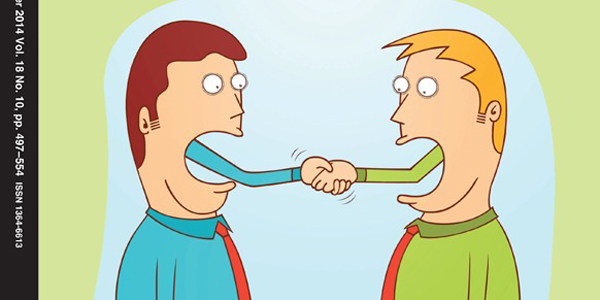Why we need behavioural economics
July 30, 2014
‘It took decades for behavioural economics to break into the mainstream. Now, after just a few years of “bias”, “anchoring” and “nudge”, some critics are already questioning whether it has anything left to offer.’ Chris Starmer, Director of NIBS and CeDEX discusses why we need behavioural economics in ‘The Conversation‘ (published online 28 July 2014)
Risk Taking and Information Aggregation in Groups
July 23, 2014
Spiros Bougheas, Jeroen Nieboer and Martin Sefton report an experiment examining risk taking and information aggregation in groups in CeDEx Working Paper 2014-09. Group members come to the table with an individual preference for a choice under risk, based on privately received information, and can share this information with fellow group members. They then make a decision under risk …
How do risk attitudes affect measured confidence?
A Working Paper from the University of Nottingham’s Centre for Decision Research and Experimental Economics (CeDEx) explores how risk attitudes affect measured confidence – paper reference 2014-05. Authors Zahra Murad, Martin Sefton and Chris Starmer examine confidence in own absolute performance using two elicitation procedures: self-reported (non-incentivised) confidence and an incentivised procedure that elicits the certainty equivalent of a bet based on …
The puzzle of high cost credit versus low yield savings
A new publication by John Gathergood and Jörg Weber entitled ‘Self-Control, Financial Literacy & the Co-Holding Puzzle’ is forthcoming in the Journal of Economic Behavior & Organization In advance of publication, the paper is available online. Using UK survey data to analyze the puzzling co-existence of high cost revolving consumer credit alongside low yield liquid …
Sudeep Bhatia on Sequential sampling and paradoxes of risky choice
July 3, 2014
Sudeep Bhatia, NIBS Research Fellow at the University of Warwick, recently published ‘Sequential sampling and paradoxes of risky choice‘ in the Psychonomic Bulletin & Review (June 2014). Abstract: The common-ratio, common-consequence, reflection, and event-splitting effects are some of the best-known findings in decision-making research. They represent robust violations of expected utility theory, and …
Bob Sugden and The Human Zoo
NIBS co-investigator Robert Sugden recently appeared on the BBC Radio 4 programme The Human Zoo (on which another NIBS co-investigator, Nick Chater, is a frequent contributor). Bob discussed the implications of competition and competitive environments with Elizabeth Anderson, the John Dewey Distinguished University Professor of Philosophy and Women’s Studies at the University of Michigan. Elizabeth has written …



